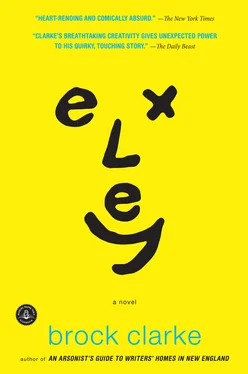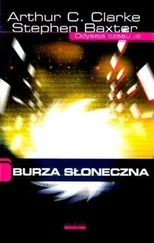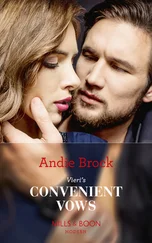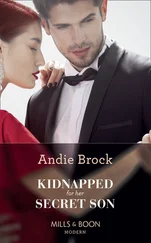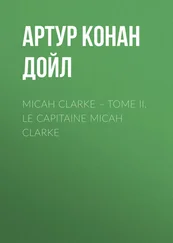“I didn’t,” I said.
“Then he did,” Yardley said, pointing in the direction of his Volvo. “That”—I could see him struggling to find the right word to describe Exley. I felt bad for him. He’d written a book that was supposed to be the final word on Exley. Now he didn’t know what word he was supposed to use next—“man,” he finally said, “obviously dug up the headstone.”
“I don’t think so,” I said. “And he’s not just a ‘man.’ He’s Exley. You know he is.”
“Oh, come on,” Yardley said. “He doesn’t even sound like Exley.”
“He does,” I said.
“No, he doesn’t,” Yardley said. “The real Exley wouldn’t sound that way.”
“What way?”
“He wouldn’t speak only in quotations from A Fan’s Notes ,” Yardley said.
I tried to raise one of my eyebrows at Yardley. I’d never been able to do it before, and I couldn’t do it now. I’m sure it looked like I had something in my eye. But Yardley apparently got the idea. His face grew red and he sputtered for a while.
“The man and woman who are supposedly his parents are buried here,” Yardley finally said. “Don’t you think if he was really their son he would have at least gotten out of the car?”
I shrugged. “You know what he’s like,” I said.
“‘Fuckin’ Fredness to the end,’” Exley shouted from the car, scaring both of us. “You wrote that in your book.”
Yardley charged over to the car to talk to Exley. But I stayed where I was, looking at Exley’s parents’ stone. I wanted to tell them something. I thought of what my parents might want to hear about me if they were dead and I wasn’t. They’d probably want to hear, He’s fine. Don’t worry about your son. He’s doing OK . But that didn’t seem quite right. Mr. and Mrs. Exley would never believe their son was OK or fine. Finally, I just said what I felt. “I’m sorry you’re dead and buried here,” I told them. “But I’m so glad your son isn’t. I need him.” Then I turned away from their headstone and walked back to the car. The car was still running. Yardley was in the car now, with Exley. Exley was in the passenger seat, his back to me, smoke from his cigarette pouring over his shoulder. I couldn’t see his face, but I could see Yardley’s: his eyes were wide and he was nodding a lot, to show that whatever Exley was telling him, Yardley understood. When I got near the car, Yardley noticed me and smiled; it was a tight-lipped, sympathetic smile, and I wondered if that meant Exley had been telling Yardley about my dad. Anyway, I opened the back door and climbed into a cloud of smoke. I waved the smoke from my face, then closed the door.
“What’s going on in here?” I said.
Neither of them said anything for a second. Something in the car seemed to have changed. The stuff falling from the sky had changed, too. It was definitely snowing now, hard. The windshield wipers were on, but they couldn’t keep up. I could barely see the sky because of the snow, but from what little I could see of it, it looked black, like it was night, although it was still morning.
“What time is it anyway?” I said.
“It’s time for me to go home,” Yardley said. He put out his hand and Exley shook it, and they smiled at each other like friends, the way Harold and J. had smiled at me before I’d made them hate me. “It’s so good to finally meet you,” he said to Exley, “after all these years.” Exley nodded likewise, and then he squinted back at me through the smoke. It’s you , I told him with my eyes. Even Yardley believes it’s you. You really are Exley . It was still snowing, but the sun had broken through the darkness and was pouring through the car windows and mingling with the smoke. It made Exley look holy, like someone who really might save us.
“I think my dad would really like to meet you,” I said. My lips were dry. Mother always said that licking your dry lips only made them drier. But I always licked them anyway. “It would make him feel so much better. I think we’re finally all ready now.”
Exley didn’t say anything at first. He took a final drag off his cigarette, rolled down the window, and with his thumb and pointer finger flipped the cigarette into the snow, where it went hiss .
“‘There are certain appeals that quite startle and benumb the heart,’” Exley said. He sounded sad. I thought I knew why. Because if Exley helped my dad get better, then I wouldn’t need Exley anymore. I wouldn’t need both a dad and an Exley. Exley must have known that. Then why was he going to help me? Because maybe Yardley was right when he wrote that most of us are born with only a few arrows in our quivers. And these were two of Exley’s arrows: he could write a great book that my dad and I loved, and he could help me get my dad back, even if it meant Exley himself had to go. Even if I didn’t want him to. Don’t go , I wanted to tell him. I missed Exley so much already, just thinking about it. I almost said, Don’t do it. Don’t help me , and I would have meant it. Instead, I told him, “Thank you.” I meant that, too. Exley nodded, You’re welcome . He glanced over at Yardley. “I’ll drop you two off at the VA hospital on my way out of town,” Yardley said.
This Isn’t Who I Said It Was
My dad was lying in bed when we got there. His eyes were closed as usual. He hadn’t been shaved yet, and his gray stubble made his face look even paler and older than normal. Suddenly, I was sure that this whole visit was a terrible mistake and that meeting Exley would never make my dad feel better, because nothing would, that nothing would ever change about him except the change I didn’t want. I almost started to cry, and Exley must have noticed because he got down on his right knee, put his left hand on my right shoulder, looked me in the eye, and asked, “Are you tough?” This, of course, is exactly what Stout Steve Owen asked Exley on page 53 of his book. On page 53, Exley was about my age. But whereas Stout Steve asked the question gruffly, in italics, Exley asked it so gently. He smiled gently, too, encouraging me to give the right answer.
“I don’t know, sir,” is what Exley said to Stout Steve on page 53, ______ years before, and what I said to Exley now, too. Exley nodded once, pushed himself to his feet, and walked over to where my father was lying. And then he did something weird: he leaned over, looked at the bracelet on my dad’s wrist, nodded, and then said, “It’s a pleasure to finally meet you, Mr. Le Ray.” My dad didn’t say anything back. He just lay there with his eyes closed. I closed my eyes, too. Because I knew Exley would ask my dad what Stout Steve asked his dad: “Is he tough, Mr. Exley?” In the book, Exley’s dad told Stout Steve, “It’s too soon to tell.” But I knew my dad wouldn’t ever say that, because I knew he wouldn’t say anything ever again.
“Is your boy tough, Mr. Le Ray?” I heard Exley say.
My dad didn’t say anything back. I kept my eyes closed. Still my dad didn’t say anything. And then suddenly I knew what was going to happen. I could see it, even with my eyes closed. I would wait and wait for my dad to say something, until finally Exley wouldn’t want to wait anymore. So he would pretend to be my dad. He would say, Yes, he’s tough , in what he thought my dad’s voice would sound like. I would have to open my eyes then. I would know it was Exley who had said that and not my dad. And either I would have to tell him so, or I would have to say, Oh my God, did my dad say that ? Either way, I would want to die. But I didn’t know how to make that not happen. So I kept standing there with my eyes closed, waiting and waiting. Finally, Exley said, “C’mon, why doncha open your eyes already?”
Читать дальше
